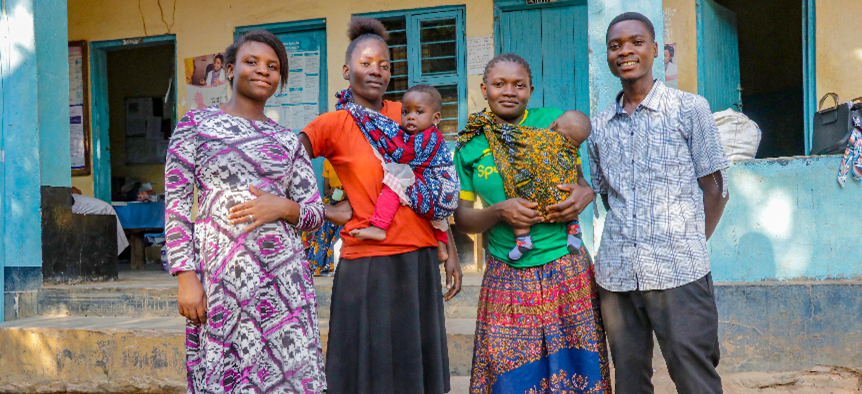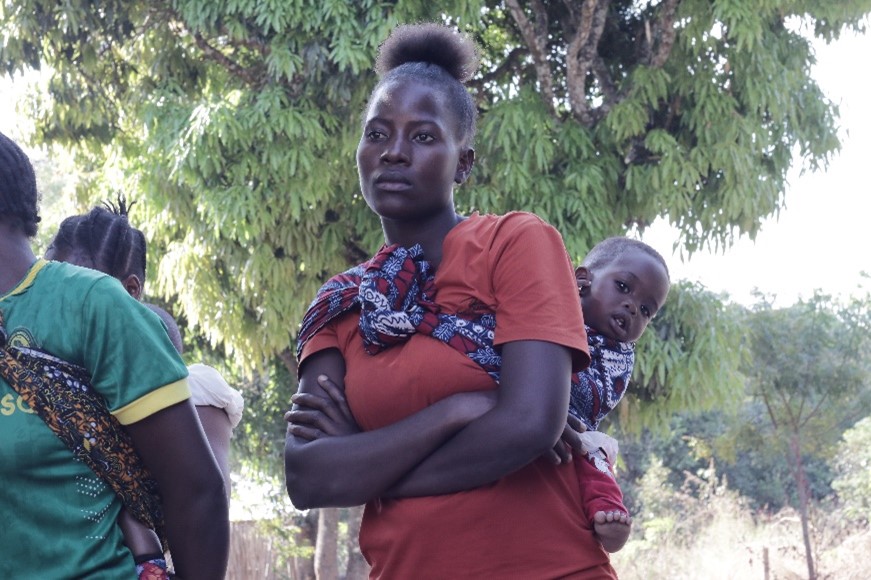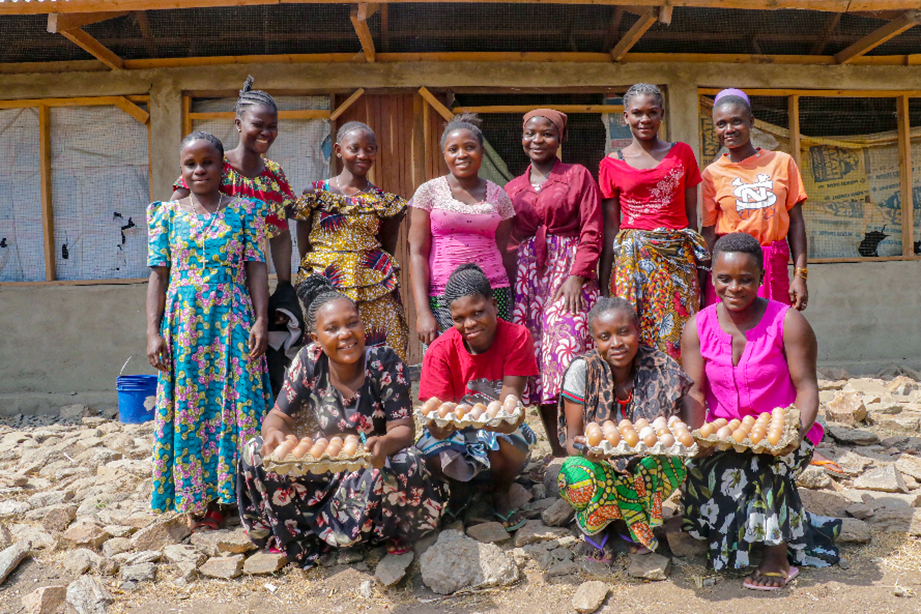First-Time Parents in Tanzania Are Delaying Additional Pregnancies as They Learn New Skills and Seek Opportunities
Published on September 22, 2023

By Sara Seper, Senior Associate, Knowledge Management and Strategic Communications and Erica Mills, Family Planning/Reproductive Health Technical Advisor
Since March 2021 in Tanzania’s Greater Mahale Ecosystem, MOMENTUM Integrated Health Resilience has been implementing an integrated, multisectoral population, health, and environment (PHE) approach that addresses both sexual and reproductive health and rights and conservation outcomes.
One intervention supported by MOMENTUM is the First-Time Parent (FTP) program. It focuses on advancing voluntary family planning, maternal and newborn health, and related gender outcomes for young, first-time mothers and their key influencers—specifically their male partners and older women relatives—while simultaneously linking them to other projects related to livelihoods and conservation. First-time parents are often missed by traditional family planning/reproductive health (FP/RH) programming and have unique, interconnected needs specific to this pivotal stage in their lives. Although the intervention is grounded in providing FP/RH information and services to first-time parents, it also touches on themes related to maternal and newborn health, conservation, natural resource management, and entrepreneurship.
The communities in the Greater Mahale Ecosystem face significant family planning and reproductive health challenges, including early sexual initiation, high levels of teenage childbearing, and low use of modern contraception (Tanzania Demographic and Health Survey and Malaria Indicator Survey 2015–16). The modern contraceptive prevalence rate is among the lowest in all of Tanzania, and unmet need for family planning among young married women (ages 15-24) remains high. Young people in these regions also face challenges in accessing income and occupational opportunities and live in communities that are affected by the impacts of climate change and the pressure it places on limited natural resources. The first-time parent intervention addresses these challenges by providing information and counseling related to FP and maternal and newborn health services; reaching the key influencers that impact their health decisions; addressing barriers to accessing quality, youth-friendly services; and providing linkages to non-health interventions, including those related to livelihoods and environmental conservation.
Throughout the implementation of the first-time parent program, MOMENTUM has seen increases in knowledge and positive attitudes related to family planning as well as increases in voluntary uptake of family planning services. For example, during the most recent phase of first-time parent small groups, the percentage of first-time mother (FTM) peer group participants who indicated it was acceptable for a young woman to use contraception increased from 78 percent to 98 percent. There was also an increase in the percentage of non-pregnant, first-time mothers using family planning, from 54 percent to 84 percent. These are promising results achieved within a relatively short six-month period.
In addition to family planning, the intervention holistically addresses the other needs of young women and couples in these communities. This has been achieved by providing information on and access to maternal and newborn health services as well as linking to other multi-sectoral population, health, and environment activities, such as model households, community conservation microfinance groups, and entrepreneurship training.

Roswita Benedicto, a peer leader of the first-time parent group from Kibo Village in the Katavi region of Tanzania, described the positive impact the group has had on the community. The peer leader training and small group sessions helped her and her peers gain an understanding of family planning, reproductive health, and entrepreneurship skills.
Reflecting on her personal journey, Roswita stated, “When I first became pregnant, life was extremely challenging. However, after joining the first-time parent group in 2022, I realized that it is possible to break the cycle of poverty and overcome life’s hardships. The negative community perspectives on family planning and early pregnancy—which denies access to reproductive health services for young women—have changed, and now young mothers can access the services without fear.”
Stamily Kabimbi is another first-time parent peer leader from Karema Village, also located in the Katavi region. She is participating in the FTP small groups as well as entrepreneurship training and activities that were arranged in partnership between MOMENTUM and the Tanzania Small Industries Development Organization (SIDO).

She says, “We are getting technical assistance from SIDO through MOMENTUM, and we are really grateful, since the project is helping in tending to family needs. We are now collaborating with our husbands to take care of our kids.”
Peer leader Roswita Benedicto sums up the program results: “I am no longer in a rush to have more children than I can afford since I am using family planning through the education received after joining the first-time parent group. I am also grateful that my husband has become supportive, although it took some time for him to understand the benefits of the first-time parent group.”
Contributor: Chaus Emmanuel, Clinical Services Mentor, MOMENTUM Integrated Health Resilience

